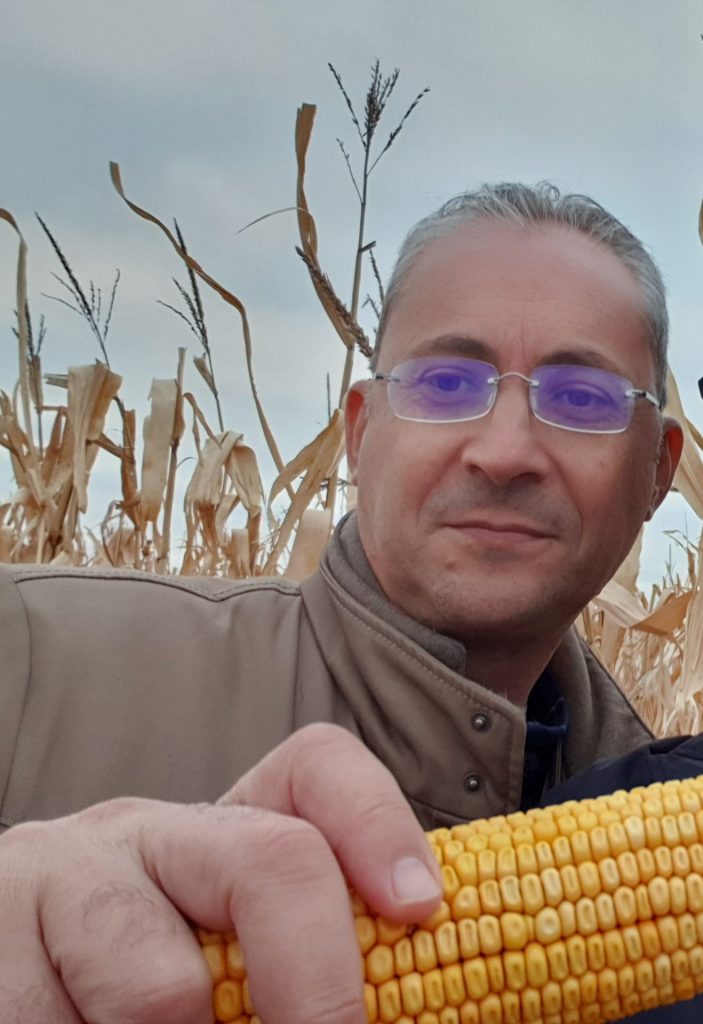To turn an old adage on its head: sell a dairy producer a bushel of corn and feed his cows for a day, or teach that producer how to expand his business and establish a lifelong customer for U.S. coarse grains and co-products.
Aberrahmen Essaied is one of those producers who has turned from potential customer to training partner. He leads dairy livestock development at one of the leading dairy and milk processors in Tunisia. He is also one of the 26 Tunisian feed industry participants who have completed the U.S. Grains Council’s (USGC’s) train-the-trainer program at the USGC Feed Training Center in Tunis, Tunisia.
“The overarching goal of this program was to provide stakeholders within the Tunisian feed industry with the practical and technical skills to further develop their operations,” said Ramy Taieb, USGC regional director for the Middle East and Africa.
“Deliberately designing this program with a train-the-trainer approach ensures the program has far-reaching impact as the trainees-turned-trainers support their peers in enhancing feed and livestock operations, even after the training program officially ends.”
Dairy is a key industry in Tunisia, representing 25 percent of the country’s livestock production. However, industry growth has remained stagnant in recent years due to factors like high feed costs.
The Council worked with the Tunisian Institute for Agronomy (INAT) to establish the Feed Training Center to support current and future leaders of the Tunisian feed and livestock industry – like Essaied – in gaining more expertise in all aspects of feed production, from grain quality to handling to feed plant layout.
Essaied and more than 190 other Tunisian feed industry professionals have completed comprehensive feed manufacturing training programs at the Feed Center, a program that combines in-classroom seminars with practical, hands-on experience in the Center’s feed mill.
Before attending training at the center, all participants were required to attend a five-week online course on fundamentals of feed manufacturing and animal nutrition. This ensured everyone came into each training program with a strengthened background in feed production and management.
Essaied was part of a smaller, select group of participants who became lead trainers at the center. As part of the train-the-trainer program, these individuals attended a two-week in-classroom training in the United States in 2019, held in collaboration with Iowa State University and the Northern Crops Institute.
While in the United States, trainers learned in-depth about the inner workings of feed production from leading U.S. feed production and animal nutritionists. This in-classroom program also served to develop the expertise necessary for trainers to successfully facilitate programs at the feed center independently, such as presentation skills.
“I was able to learn more about feeding dairy and improving the feed-cost ratio,” Essaied said. “When I came back to Tunisia, I decided to duplicate the good practices I learned during the program and start producing corn and alfalfa silage.”
Essaied also encouraged other dairy and livestock producers to explore silage, a lesser-known animal feed in Tunisia. He persuaded fellow producers to expand the yield of silage, and now they are working together to explore adding corn co-products to the total mixed ration for dairy cows.
This work to develop and improve feed manufacturing processes and livestock management practices across Tunisia has been part of a two-year project funded by a U.S. Department of State grant. The Council and the U.S. embassy in Tunisia jointly hosted a ribbon-cutting ceremony last week at the Feed Training Center for Tunisian government and industry partners to celebrate the success of this program.
Now, the Feed Training Center is expanding its reach in the region through a USDA Section 108 grant – a new three-year program. The first group of 15 Algerian feed industry representatives participated in the program late in 2019, with new programs delayed due to COVID-19 travel restrictions.
While in-person programs are on pause, trainers like Essaied and other program participants continue to distribute their newly gained knowledge and expertise to the broader feed and livestock industry – one of the program’s key objectives.
“The feed industry in North Africa and especially Sub-Saharan Africa still has significant growth opportunities,” Taieb said. “Even those who did not participate directly in a training program are being exposed to production practices that will support their businesses to operate more efficiently and effectively. This work supports the growth of the regional feed industry and builds future customers for U.S. coarse grains and co-products.”
About The U.S. Grains Council
The U.S. Grains Council develops export markets for U.S. barley, corn, sorghum and related products including distiller’s dried grains with solubles (DDGS) and ethanol. With full-time presence in 28 locations, the Council operates programs in more than 50 countries and the European Union. The Council believes exports are vital to global economic development and to U.S. agriculture’s profitability. Detailed information about the Council and its programs is online at www.grains.org.

